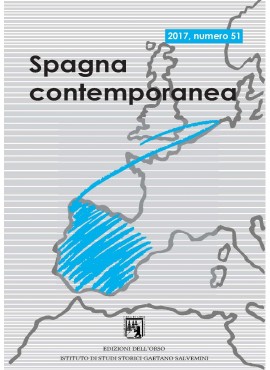Lengua e inmigración en la definición de la nación: el caso Vasco
Parole chiave:
Nazionalismo Basco, Nazione, Euskera, Immigrazione, Paesi BaschiAbstract
Language and Immigration in the definition of the Nation: the Basque case
This article studies the role of both the Basque language and immigration in the shaping of the theoretical discourse of Basque nationalism on the Nation. Two stages can be identified: in the early stage, the idea of Nation was based on race, while later on, in the mid 20th century, there was a renewal. Thus, the Basque language started to play a central role in the definition of Basque nationality from the Sixties onward. At the same time, this change led to the development of a new discourse on immigration. This paper explains the interrelation between these two spheres.
Received: 04-04-2016
Admitted: 24-12-2016
Dowloads
Pubblicato
Fascicolo
Sezione
Licenza
Copyright (c) 2017 Istituto di studi storici Gaetano Salvemini, Torino

Questo volume è pubblicato con la licenza Creative Commons Attribuzione - Non commerciale - Non opere derivate 4.0 Internazionale.



